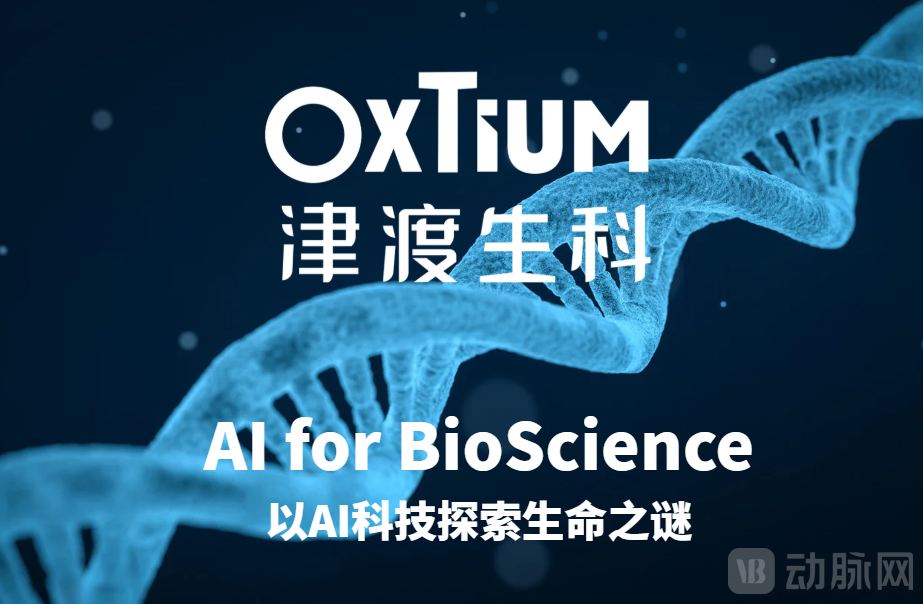OxTium secures tens of millions in Pre-A funding from CDF Capital to boost AI for BioScience
Shenzhen OxTium Biomedical Technology Co., Ltd. ("OxTium") recently announced the completion of a tens of millions of yuan Pre-A funding round. This round was led by CDF Capital, with participation from Jiangxi Financial Holding. Amid a thriving investment landscape for AI for Science, OxTium has secured several consecutive funding rounds, accumulating nearly 100 million yuan in total financing to date.
As a pioneer in AI for BioScience, OxTium possesses the globally advanced biological science large language model, GeneLLM, and has developed the integrated bioscience research platform BioFord™ and the bioscience agent system BioFord Agent™. The core team, led by Dr. Jin Yongcheng, is composed entirely of members from the University of Oxford, bringing interdisciplinary expertise in life sciences and artificial intelligence.
AI for Science (AI4S) is recognized as the "fifth paradigm" of scientific discovery, building upon the essence of the previous four paradigms: from empirical observation and theoretical deduction to computational simulation and data-driven scientific discovery. The core of this fifth paradigm lies in the transformation of artificial intelligence from a mere auxiliary tool into a true "collaborator" and "accelerator" in the scientific discovery process.
Compared to fields like chemistry and materials science, AI appears to be an even more "compatible match" for bioscience. Firstly, the bioscience field is experiencing a data explosion, ranging from raw multi-omics sequencing data to expression information matrices, with data volumes expanding from terabytes to petabytes and beyond, providing essential training resources for AI. Secondly, across biotech sectors including drug development, precision medicine, synthetic biology, and agricultural biotechnology, there exists strong demand for AI for Science applications and significant willingness to invest in industrial R&D.

Today, AI extracts hidden patterns from massive biological data, proposes new hypotheses, designs experiments, and accelerates the cycle of scientific research.
For instance, DeepMind's AlphaFold 2 accurately predicts the three-dimensional structure of proteins based on their amino acid sequences. The Arc Institute's Evo2 can understand and generate the language of life molecules, including multimodal biological data such as DNA, RNA, and proteins. OxTium's GeneLLM large model processes multidimensional data including genomics, transcriptomics, proteomics, metagenomics, and epigenomics, significantly advancing both fundamental research and the translation of scientific achievements.
The core input and processing objects of these three models are all sequence data of life molecules (amino acid sequences, nucleotide sequences), treating these sequences as a "language" to be understood and predicted.
Currently, OxTium's self-developed GeneLLM (with 1.5 billion parameters) has been pre-trained on 23 billion sequencing sequences and 3.45 trillion bases of data. It supports fundamental research across multiple fields including disease diagnosis, drug development, and synthetic biology, establishing a distinct position among global large-scale biological science models.
AI is transforming how scientists handle complex data and generate new scientific insights.
However, research resources remain unevenly distributed. The substantial computational and financial resources required for training and operating large models create prohibitive costs for many research groups and small-to-medium institutions attempting AI adoption, making technical barriers difficult to overcome.
OxTium's integrated bioscience research platform, BioFord™, combines cutting-edge model tools with practical AI functionalities. Through model fine-tuning and inference tools, users can deploy existing models with one-click access and personalized adjustments without training massive models from scratch, enabling complex data analysis and predictions to be completed rapidly. The platform supports scientific research and applications across multiple fields including fundamental research, medical diagnostics, biomanufacturing, biological breeding, and environmental monitoring, delivering visualized, high-precision, and interpretable multi-omics AI solutions.

In current explorations of AI for BioScience, "autonomous scientific discovery" centered around intelligent laboratories represents a crucial segment. OxTium has introduced the bioscience agent system BioFord Agent™, which integrates AI technology with automated laboratory platforms (robotics) to form an automated scientific discovery system capable of autonomously executing the closed loop of "hypothesis-experiment-validation-new hypothesis."
Addressing longstanding challenges in traditional research—such as fragmented data, low experimental efficiency, dispersed computing resources, and frequent human errors—the introduction of AI agents throughout the entire research process enables the BioFord Agent™ system to tackle these pain points through automation, intelligence, and digitalization, thereby establishing a new, more precise, and efficient research paradigm.
AI for BioScience is rapidly transitioning from the "proof-of-concept" stage to the "industrial application" stage. Focusing exclusively on AI for BioScience, OxTium delivers diverse and groundbreaking artificial intelligence solutions with broad industrial prospects.
